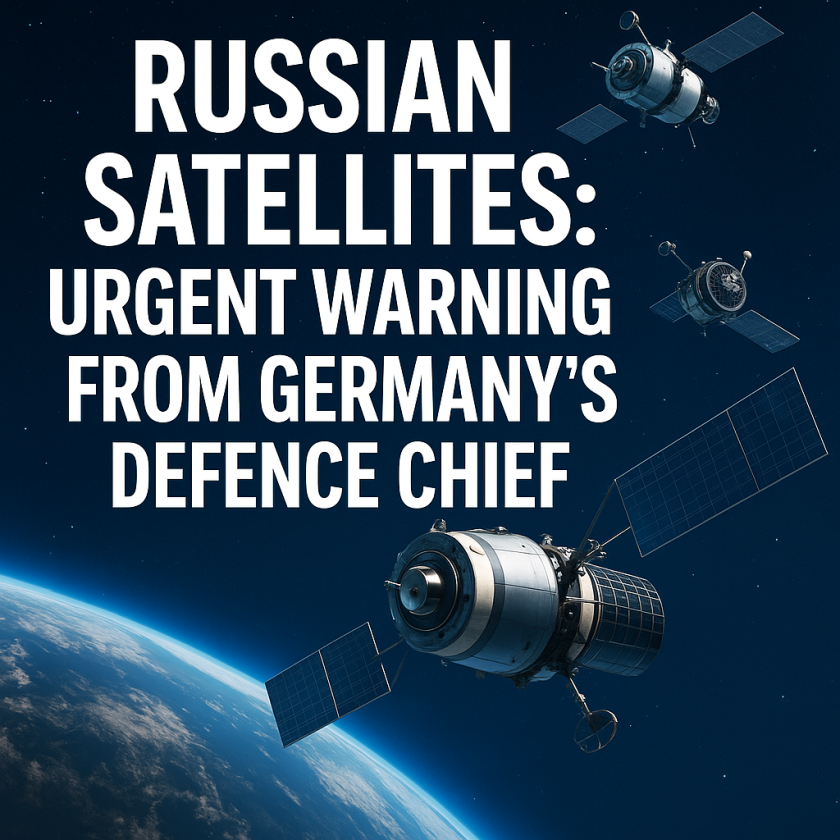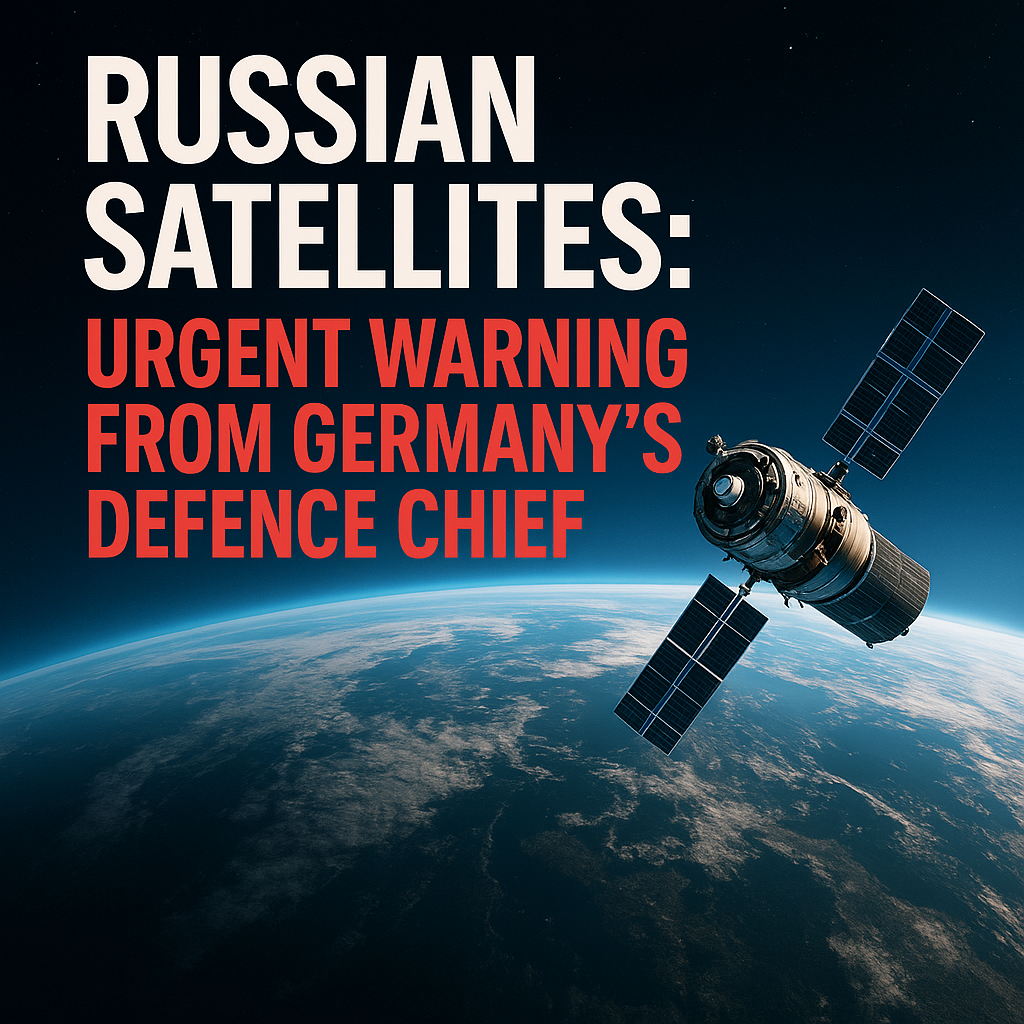Russian Satellites: Urgent Warning from Germany’s Defence Chief
Russian Satellites: Urgent Warning from Germany’s Defence Chief
Russian satellites have increasingly become a focal point of concern for European defense, particularly in Germany, where the Defence Chief has issued urgent warnings about the implications of this growing surveillance. This situation raises not only security concerns but also questions regarding international protocols surrounding the use of satellite technology.
The Rising Threat of Russian Surveillance

Recent statements from Germany’s Defence Minister, Boris Pistorius, emphasize the need for heightened awareness regarding the activities of Russian satellites. These satellites are reportedly shadowing German space assets, an action that could indicate potential espionage or military preparations. Pistorius warned that this poses a “serious threat to Germany’s space capabilities,” suggesting that adversarial countries are increasingly exploiting technological advancements to gain a military edge.
Experts argue that the surveillance capabilities of satellites have expanded significantly, making it easier to monitor military movements and civilian infrastructure alike. Historically, such tactics have been employed during periods of heightened tensions, and the current geopolitical climate is no exception. The prospect of a new arms race in space seems more likely than ever, as nations leverage space technology for strategic advantages.
Diverse Perspectives on the Implications
Despite growing concerns, opinions differ on how significant the threat truly is. Some analysts argue that while the presence of surveillance satellites is alarming, it should not drastically alter current defense postures. According to an article from Al Jazeera, experts suggest that rather than viewing these satellites strictly as military assets, it may be more beneficial to consider the broader implications of their usage in intelligence gathering, research, and environmental monitoring.
On the other hand, reports from other sources, including Sky News, highlight the urgency surrounding the situation. They cite Pistorius, stating, “Germany must take these warnings seriously; the stakes are higher than ever in the context of Russian military aggression.” This perspective aligns with the more alarmist viewpoint that advocates for immediate and robust countermeasures, including enhancing Germany’s own satellite capabilities and building stronger alliances within NATO to deter acts of aggression.
What Lies Ahead?
As the situation develops, it is essential to weigh both the potential for heightened tensions and collaborative opportunities. Increased transparency and international dialogue regarding satellite activities may pave the way for a more stable environment in space. Collaborative frameworks that include space-faring nations could mitigate the risk of misinterpretation and accidental escalation.
Additionally, the technology being used in satellites is advancing rapidly, with commercial and military uses increasingly blurring together. While traditional warfare methods can be monitored through ground troops and naval movements, satellites introduce a new layer of complexity. Understanding these dynamics will be crucial for policymakers in Germany and across Europe as they navigate this rapidly evolving landscape.
The Call for Preparedness
In conclusion, the warning from Germany’s Defence Chief serves as a crucial reminder of the growing implications of space-related technology in military strategies. The sightings of Russian satellites monitoring German assets emphasize the sophistication and risks involved in modern warfare.
As the international community grapples with this new reality, it becomes imperative for nations to enhance their inter-satellite communication and defense measures. Germany’s burgeoning focus on integrating space and defense strategies may serve as a template for other nations, emphasizing the need for collaborative efforts in space governance. With potential threats looming, equipping national defense with the necessary tools for space security has never been more urgent.
The balanced discourse surrounding Russian satellites underscores a critical juncture for global security. While there are varying opinions on the severity of the threat, the need for vigilance and strategic planning remains paramount.
Searching forward, the best course of action may not solely involve countering adversarial technologies but rather fostering international cooperation to ensure that space remains a domain for peaceful exploration and shared progress.




































